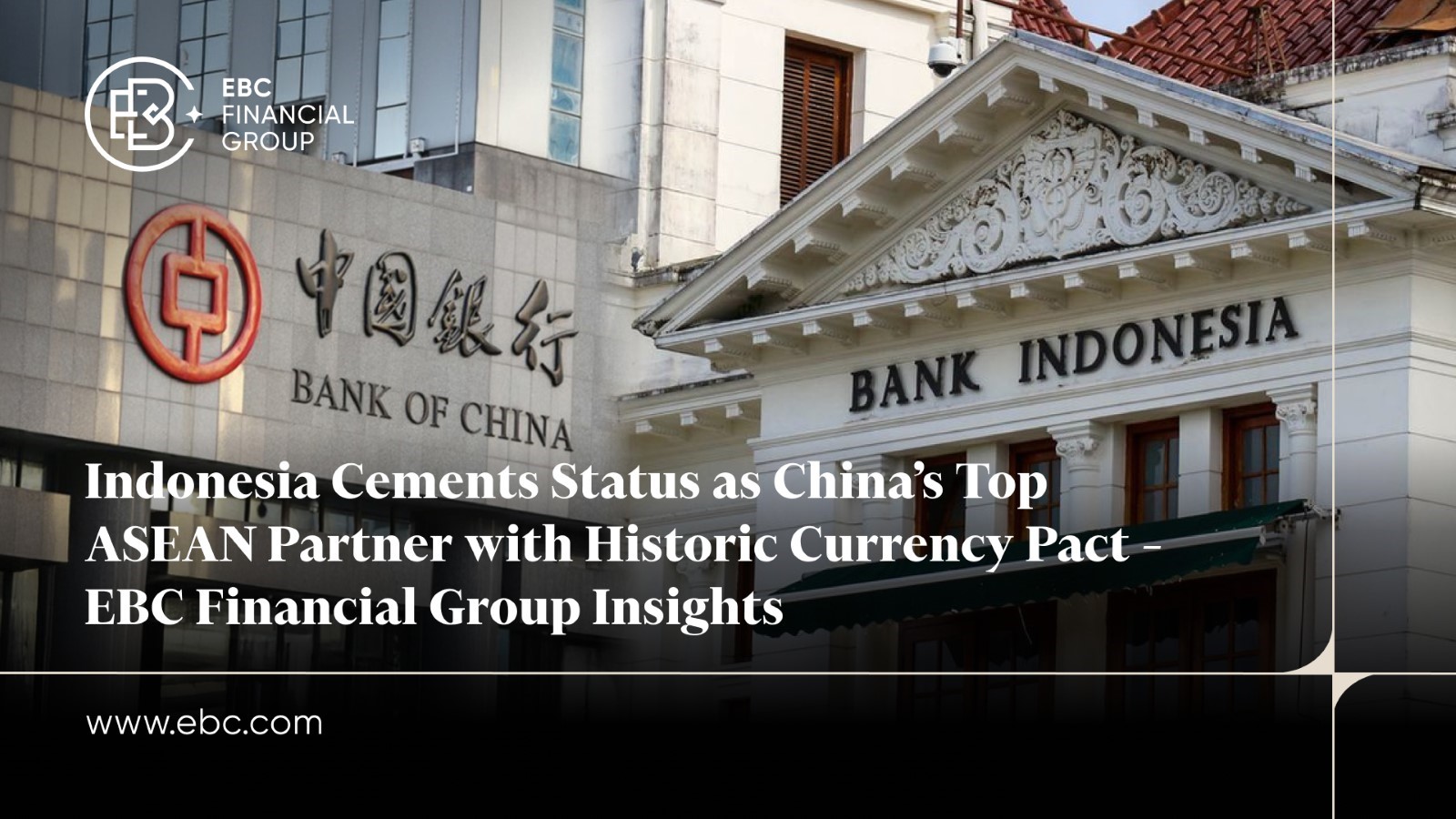As one of China's largest ASEAN trading partners, with bilateral commerce
reaching USD147.80 billion in 2024 that brings 6.1% YoY increment, Indonesia has
solidified its Bilateral tie with China. During Chinese Premier Li Qiang's state
visit ahead of the Summit of the Association of Southeast Asian Nations (ASEAN),
the Cooperation Council for the Arab States of the Gulf (GCC), and the People's
Republic of China (ASEAN-GCC-China Summit), the two nations inked four new
Memoranda of Understanding (MoUs)—most critically, an upgraded Local Currency
Settlement (LCS) pact between Bank Indonesia (BI) and the People's Bank of China
(PBOC). We at EBC Financial Group (EBC) examine how this financial MoU redefines
Indonesia's economic resilience and signals a strategic shift in emerging-market
(EM) alliances.

Sectoral Wins: The Foundation for Deeper Ties
The bilateral accords signed on 25 May 2025 lays a solid foundation for
Indonesia's deeper engagement with China across multiple economic sectors
directly supporting the LCS framework. In trade and tourism, Indonesia
anticipates welcoming nearly 2 million Chinese visitors in 2025 through
streamlined visa policies and improved payment systems. This tourism expansion
aligns with significant supply chain developments, including a USD5 billion
commitment for twin industrial park development that will generate over 100,000
jobs at projects linking Fujian and Batang Special Economic Zone (SEZ). Beyond
trade, the agreements foster soft power through joint TB vaccine research and
Antara-Xinhua media collaboration, strengthening people-to-people
connections.
The LCS Breakthrough: Financial Sovereignty in Action
The BI-PBOC agreement, which expands direct Rupiah-Yuan use to capital
accounts transactions, comes with three strategic advantages. First, it creates
a powerful trade shield - with bilateral commerce reaching USD147.80 billion in
2024 that brings a 6.1% YoY increase and projected to exceed USD160 billion in
2025 as Indonesia solidifies its rank as one of China's biggest ASEAN partners,
among Vietnam and Malaysia. The LCS framework eliminates costly USD conversions
for Indonesian exporters of key commodities like palm oil and nickel. Second, it
provides BI with a better rate cut buffer by leveraging the 5.3% of reserves
already held in Yuan, the central bank gets more flexibility to ease policy
without destabilising the Rupiah. Lastly, this breakthrough unlocks strategic
BRICS+ initiatives, granting Indonesia access to New Development Bank (NDB)
funding that could accelerate President Prabowo's ambitious USD20 billion
infrastructure agenda while reducing reliance on dollar-denominated debt.
"This isn't just about cutting transaction fees—it's a recalibration of
Indonesia's financial DNA," says David Barrett, CEO of EBC Financial Group (UK)
Ltd. "By enabling Yuan-backed trade and investment flows, BI is building a hedge
against Fed policy shocks."
ASEAN's New Template: Unity Amid Global Realignments
Indonesia's recent currency pact mirrors regional momentum, with China-ASEAN
trade surging to 2.38 trillion Yuan (approximately USD330B) where the combined
trade from January until April 2025, shows a 9.2% YoY increment. The upgraded
China-ASEAN Free Trade Area (CAFTA) 3.0 underscores a commitment to deeper
economic integration, encompassing sectors like digital and green economies.
This development offers ASEAN nations alternative trade pathways amid global
uncertainties. Furthermore, the ASEAN-GCC-China Summit in Kuala Lumpur
highlighted the regions' intent to bolster economic ties and explore diversified
financial collaborations. While not explicitly a "post-dollar" strategy, the
summit signifies a collective move towards more resilient and diversified
economic partnerships. As Barrett notes, "Indonesia is crafting a blueprint for
monetary diversification. The Local Currency Settlement (LCS) deal illustrates
how mid-sized economies can reduce overreliance on a single dominant currency,
balancing regional cohesion with global standards."
To explore EBC's Indonesia market analysis and macroeconomic trend, visit
www.ebc.com/id/
Disclaimer: This material is for general information purposes only and is not
intended as (and should not be considered to be) financial, investment or other
advice on which reliance should be placed. No opinion given in the material
constitutes a recommendation by EBC or the author that any particular
investment, security, transaction or investment strategy is suitable for any
specific person.











